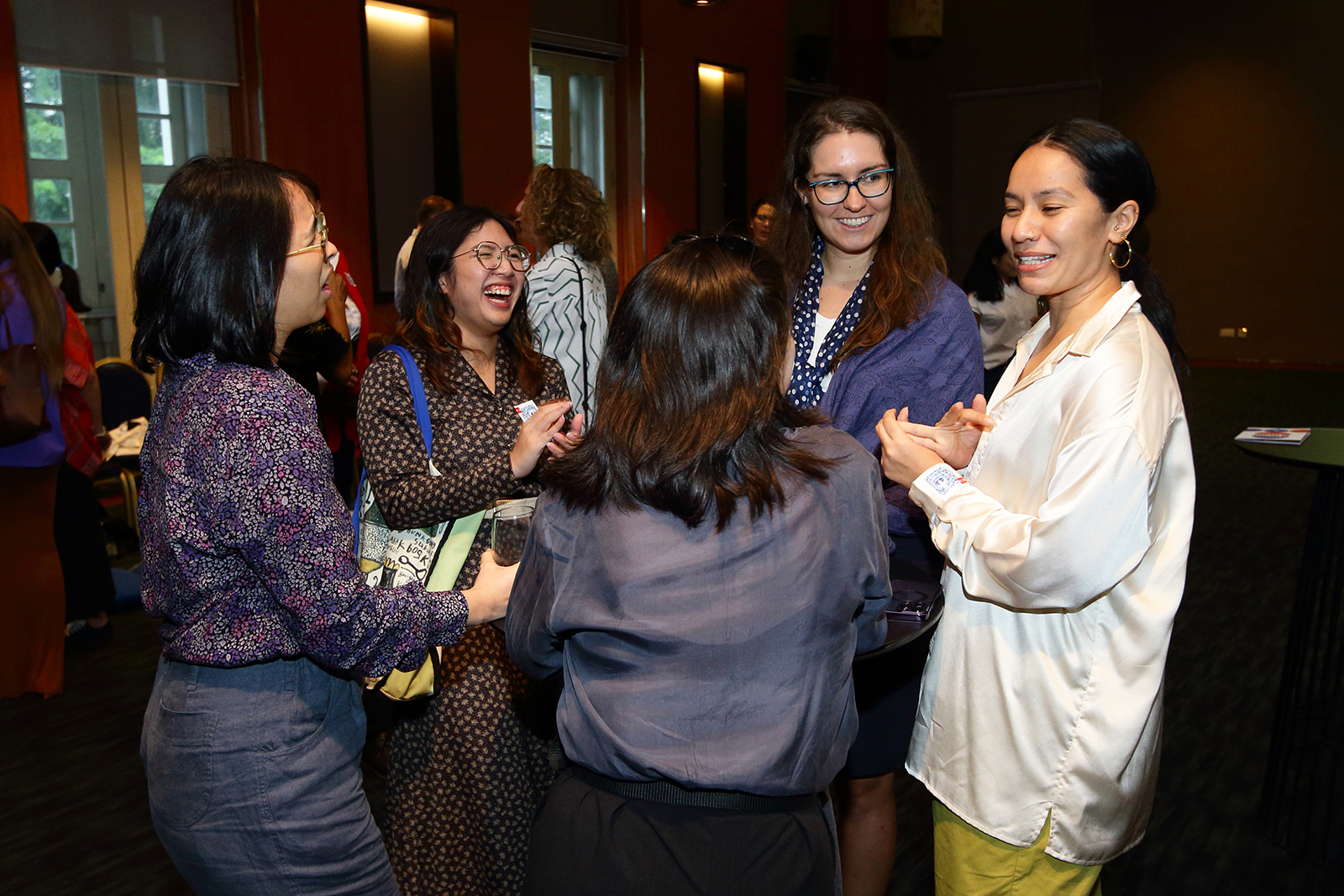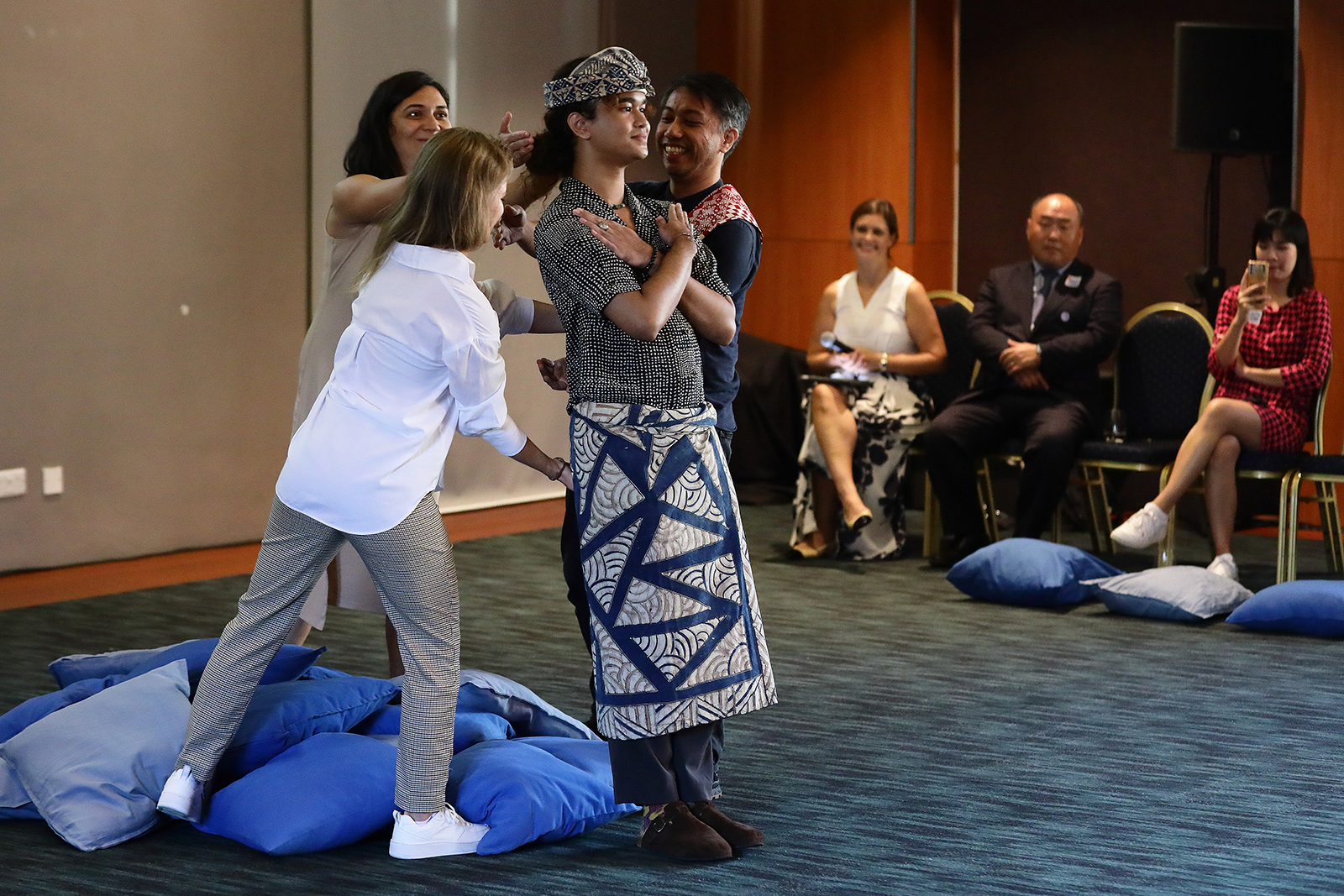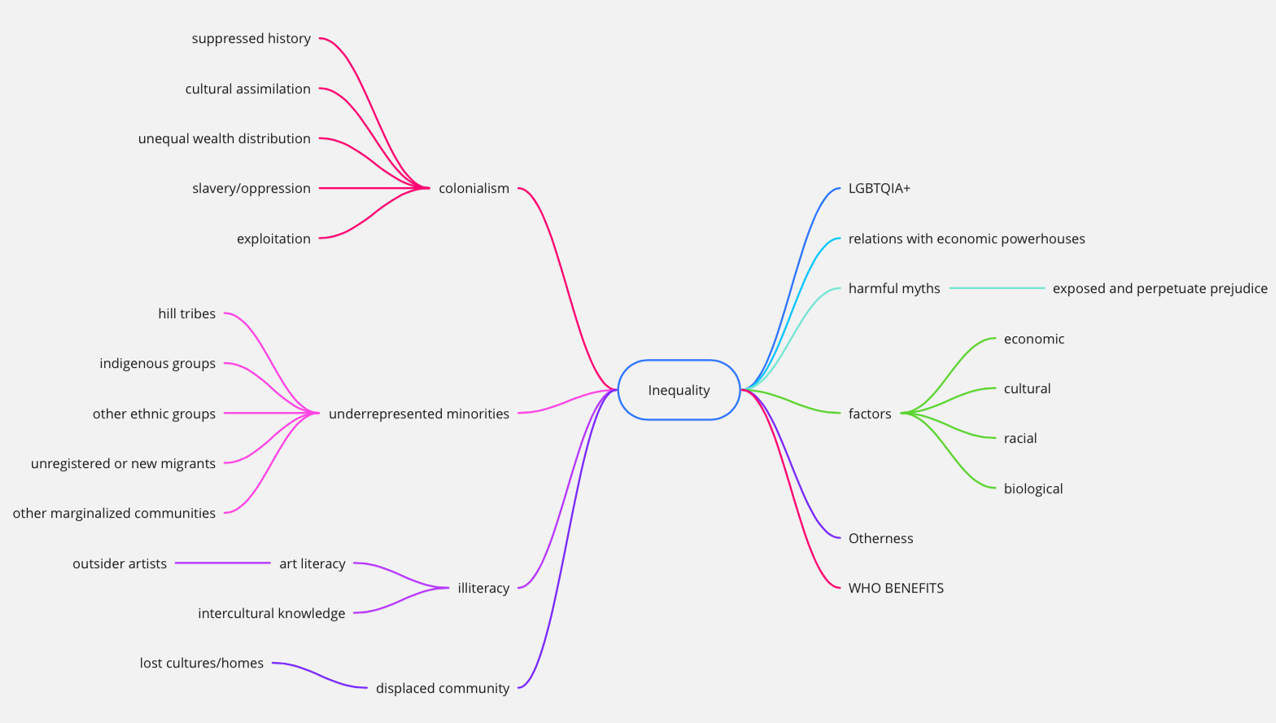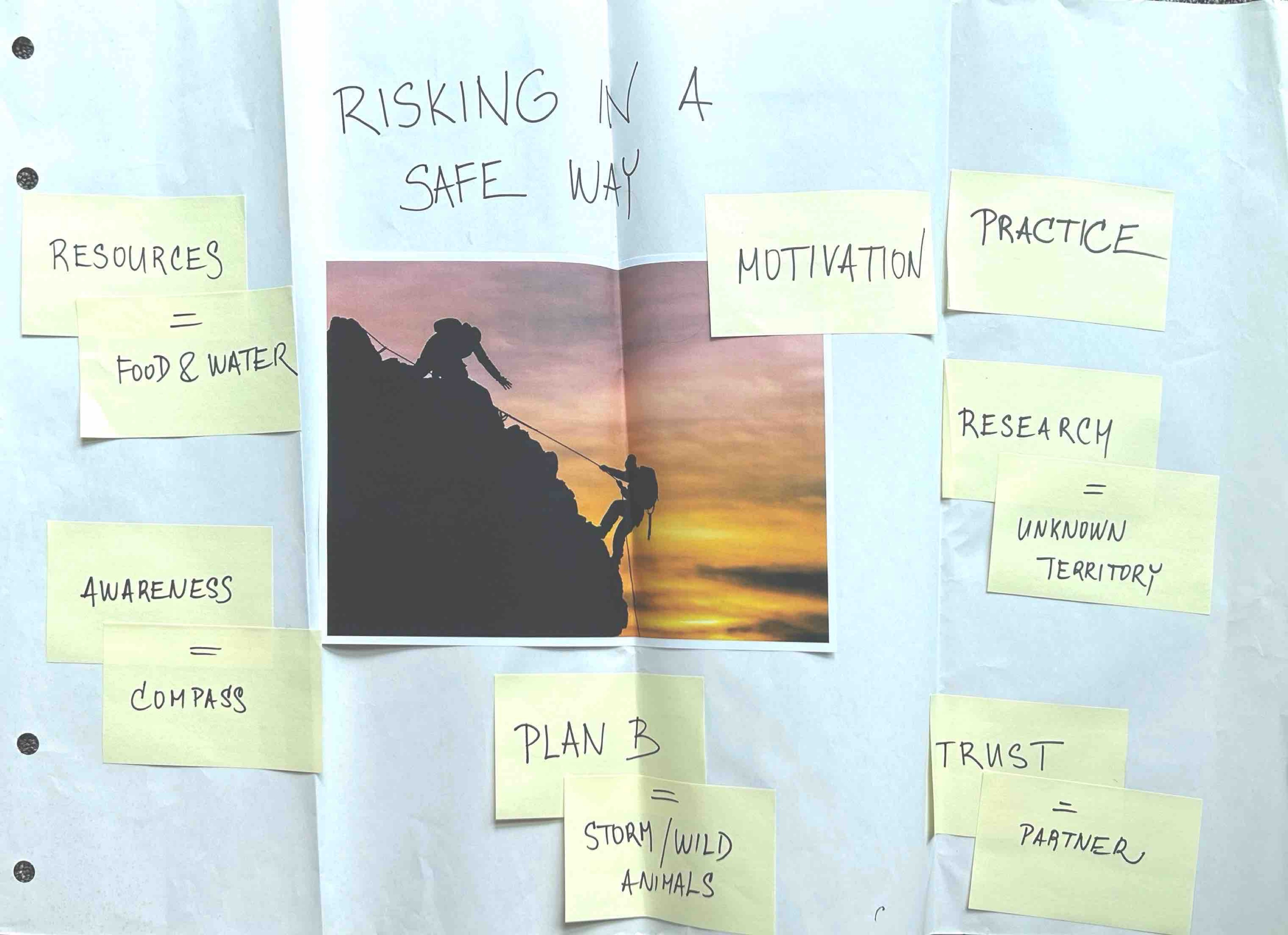By culture360
ASEF LinkUp: Findings from the Asia-Europe Cultural Diplomacy Lab

The first edition of ASEF LinkUp | Asia-Europe Cultural Diplomacy Lab took place from 24 to 27 October 2023 in Singapore. Through this project, ASEF aimed to create new spaces for encounters and capacity building where various agents involved in cultural cooperation (e.g. diplomats, managers, funders, artists) can meet and share knowledge and approaches from different regions.
Over the 4-day programme of ASEF LinkUp, 20 participants from over 13 countries from various artistic and diplomatic sectors “linked-up” with one another, to exchange, rethink and reimagine cultural exchange.

1. Final sharing from the participants during the last day of ASEF LinkUp 2023 © Asia-Europe Foundation
The participants were split into smaller groups, with each group comprising a mix of arts professionals and those from the diplomatic sector. Each group focused on discussing one of five guiding themes:
1. The Balancing Act
How do we navigate in/equalities and choices when developing international cultural projects? Under this theme we will discuss ways in which we can take a fairer approach and go beyond colonial narratives.
2. The Collective Mindset
Compared to the competition mindset, can culture and the arts positively influence the cooperation and collaboration mentality that we need more than ever? How to communicate this method as not the one of the weak? What do we gain being part of a collective? Under this theme we will explore new partnership models across different sectors as a way to develop cultural projects internationally.
3. Finding Beauty in Difference
Same same - but different? Difference and diversity are not always easy to embrace - do we believe and/or know they are actually good for us? How do we tell a story of diverse communities that makes us stronger, more creative and safer? Under this theme we will discuss how to go beyond stereotypes and increase awareness of each other.
4. At the Risk of …
How much is at risk when developing cultural projects? How can we integrate a fairer and more sustainable approach? Under this theme we will discuss the current climate crisis, seeing projects through the lenses of social justice and sustainability of cultural practices (e.g. indigenous practices, community practices).
5. The Great Divide
Is this world really a jungle where only the strongest survive or are we here to support each other, whatever our starting point or environment is? How do we approach the challenges of these divides? Under this theme we will discuss the risks of polarization, isolation and new patterns of interaction.
The participants were also treated to a host of different workshops, networking visits and provocations to supplement their discussions, which culminated in a final sharing of their findings. They were encouraged to use mood boards to document and articulate their processes, and also to present their ideas in a unique and engaging format.
These mediums of documentation and presentation allowed them to consider multiple perspectives and ways of conveying their ideas to the audience. The group sharings ranged from performances, to humorous videos, interactive websites and digital tools, which at times even drew from audience and volunteer participation to put forth their bold ideas.

2. The At the Risk of... team conducting a trust fall exercise with a volunteer to demonstrate risking in a safe way © Asia-Europe Foundation

3. The team from The Collective Mindset did a performance of pouring water from different coloured mugs into the same container, illustrating different groups coming together to attain a common goal © Asia-Europe Foundation
Across the groups, challenges of existing inequalities in arts and culture and possible solutions were discussed, from micro-level concerns such as individual identity and access to resources, to overarching societal and systemic concerns such as education and global socioeconomic imbalances.
Through the Lab, participants were also able to identify and consider the positions of several stakeholders involved in the cultural and creative sectors, and noted different priority areas, approaches, and limitations in their respective roles and fields.
The team responding to The Balancing Act illustrated these concerns by identifying an inexhaustive list of various contributors, as well as more insidious and intangible factors (such as harmful myths about certain communities) perpetrating cycles of inequality.

4. A diagram by the team of The Balancing Act illustrating key players and factors influencing inequality © Asia-Europe Foundation
There were also discussions challenging and questioning the themes themselves. For example, the team assigned to The Collective Mindset highlighted that plurality can be an important part of collectivity, and even attempted to question the extent to which such a mindset was necessary, realistic, and achievable. Likewise, the team Finding Beauty in Difference raised questions of whether it was even necessary to find "beauty" in difference, what that might mean to different people, and if we might have the capacity to be inclusive.
5. A mood board from the At the Risk of... group documenting ideas from their discussion © Asia-Europe Foundation
Similarly, the group responding to the theme of At the Risk of... identified certain kinds of risks that could prove beneficial to the project as well, demonstrating that risk need not always be viewed as a detriment. They also distinguished the difference between risks with more tangible consequences from those which were more subjective and perception-based, and shared a risk assessment tool to more acutely identify the various kinds of factors at stake when approaching projects (try out their tool here).
The importance of humour and healthy communication was a key takeaway for the team of Finding Beauty in Difference who came up with this video illustrating their discussion and perspectives:
Though tackled in a humorous way, the act of utilising randomness in the form of Mongolian sheep bones in an attempt to answer difficult questions itself demonstrates the importance of diversity not only in visible identity markers, but also in thought. These unique and fresh perspectives are arguably necessary and serve as a response to more traditional approaches to addressing social divides.
Finally, The Great Divide team utilised real-life case studies to identify needs for the cultural sector, and highlighted certain areas where the needs of creators and consumers may be mismatched. They concluded that while there was no one-size-fits-all solution, taking the initiative to bridge these divides itself is an important first step to filling the gaps.
The ASEF LinkUp | Asia-Europe Cultural Diplomacy Lab ultimately proved to be fertile ground for vital conversations to bloom between various different stakeholders, from the creative industries to government sectors. Though no concrete solutions might have emerged from this short four-day programme as yet, the confluence of perspectives between the independent and the systemic serves to be a much needed and welcome first step in addressing longstanding gaps in cultural diplomacy.
Stay tuned to ASEF culture360's social media channels to find out more about ASEF LinkUp in 2024!
ASEF LinkUp | Asia-Europe Cultural Diplomacy Lab was organised with the support of the Embassy of Italy in Singapore and Casa Asia. The participation of the Czech Republic participants was supported by the Arts and Theatre Institute (ATI) and Perform Czech.
Similar content
posted on
posted on
posted on
posted on
posted on



